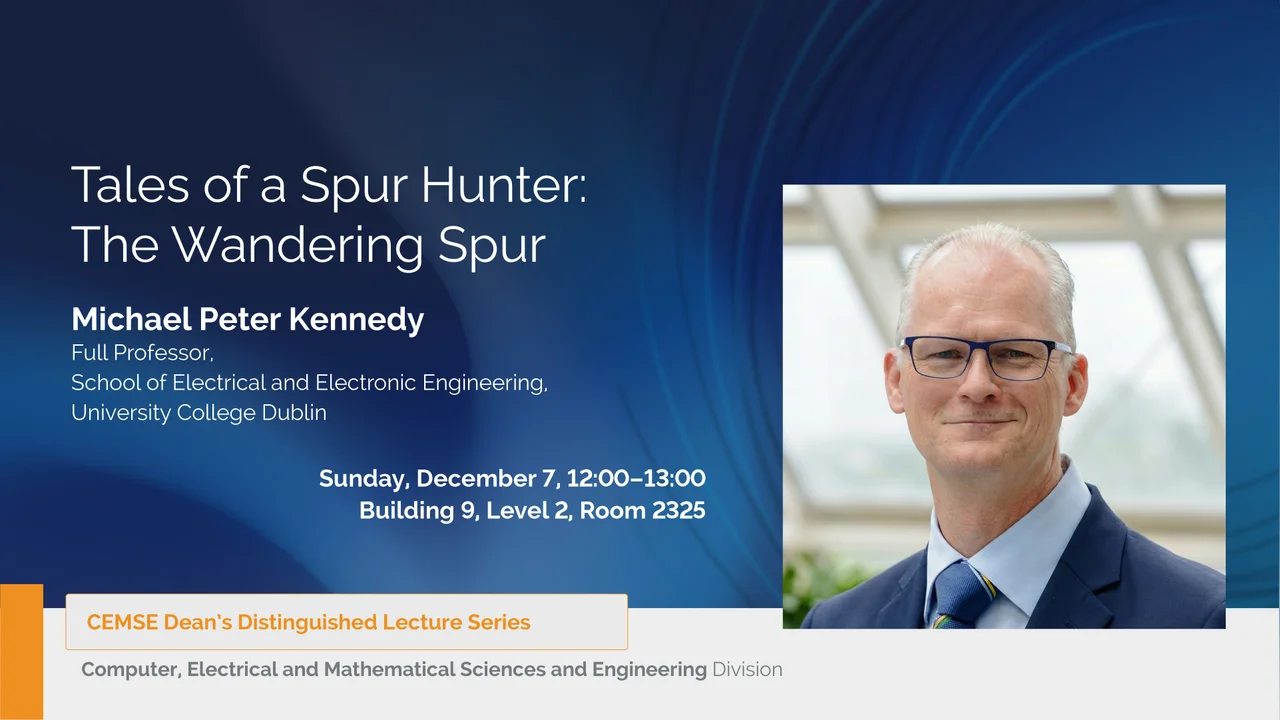
Tales of a Spur Hunter: The Wandering Spur
Prof. Michael Peter Kennedy presents the decade-long journey to diagnose and fix 'wandering spurs' in frequency synthesizers.
Overview
During the early 2000s, users of fractional-N frequency synthesizers noticed intermittent pulsing of the noise floor and unexplained spurious frequency components moving about the spectrum for some settings of the fraction. These became known by a number of names including moving spurs, walking spurs, marching spurs, and wandering spurs. The Nonlinear Circuits Group spent ten years finding the root cause of these strange spurs, developing solutions to mitigate them, and transferring the technology into commercial products. This is the story of that journey from a diversity of experimental manifestations to reproduction in simulation, a theoretical explanation, a first solution that failed in implementation, diagnosing the cause of the first failure, a second solution that worked better, and incorporation of that solution into a commercial product. It illustrates a research journey from need-driven basic research to commercial exploitation.
Presenters
Michael Peter Kennedy, Full Professor, School of Electrical and Electronic Engineering, University College Dublin
Brief Biography
Michael Peter Kennedy is Professor of Microelectronic Engineering at University College Dublin, Ireland and an IEEE Fellow. He received his Ph.D. degree from the University of California, Berkeley, the D.Eng. degree from the National University of Ireland, and an honorary DSc in Engineering from the Queen’s University of Belfast. He has published and lectured on a range of topics in the field of nonlinear circuits and systems including oscillators, chaos, neural networks, mixed-signal testing, phase-locked loops, delta-sigma modulation and frequency synthesis. He was awarded the IEEE Third Millennium Medal, the IEEE Circuits and Systems Society Golden Jubilee Medal, and the RIA Parsons Medal. He has licensed frequency synthesis technology and provided consultancy services to a number of semiconductor companies and co-founded Ireland’s SSCS Chapter, the Microelectronics Industry Design Association and the Microelectronic Circuits Centre Ireland.